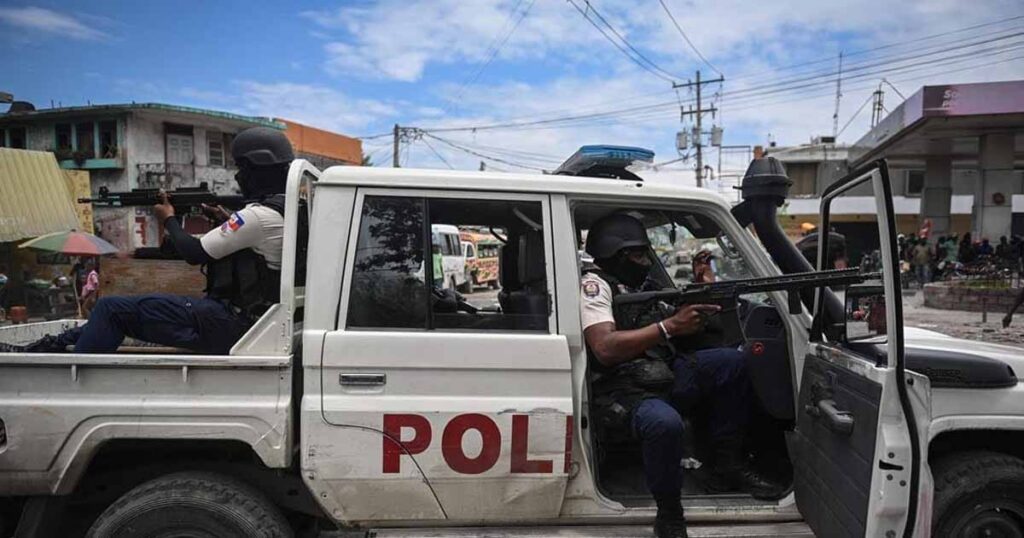Haiti, long plagued by political instability and economic hardships, faces a worsening security crisis as gang violence spirals out of control. With international security forces attempting to restore order and humanitarian groups sounding alarms over a deepening humanitarian disaster, the country stands at a crossroads. The situation is a national emergency and a regional and international challenge, demanding urgent action and sustained commitment.

Background: How Did Haiti Reach This Crisis Point?
Haiti’s current security crisis stems from a convergence of factors:
- Political Vacuum: The 2021 assassination of President Jovenel Moïse left a power void, fueling instability.
- Economic Collapse: Chronic poverty and lack of opportunities have pushed many into the arms of criminal organizations.
- Gang Proliferation: Gangs now control large parts of the capital, Port-au-Prince, and other regions, effectively replacing state authority in many areas.
These gangs are not just criminal enterprises; they operate with political undertones, often backed by factions seeking to exert influence.
Key Aspects of the Crisis
1. Escalating Violence
- Gangs control an estimated 60% of Port-au-Prince, engaging in turf wars and brutal acts of violence.
- Kidnappings, extortion, and killings have become daily occurrences, paralyzing economic activities and normal life.
- Women and children are disproportionately affected, with widespread reports of sexual violence and forced recruitment.
2. Humanitarian Catastrophe
- Over 200,000 people have been displaced by the violence, forced to live in makeshift shelters or overcrowded camps.
- Access to food, clean water, and healthcare is severely restricted, exacerbating malnutrition and disease outbreaks.
- Humanitarian agencies report that aid delivery is often blocked by gangs, leaving vulnerable populations without support.
3. International Intervention
- In October 2023, the UN authorized a multinational security force led by Kenya to assist Haitian authorities.
- This force aims to dismantle gang networks, secure key infrastructure, and enable humanitarian access.
- However, the deployment has faced criticism for being slow and lacking sufficient resources to match the scale of the crisis.
Humanitarian Concerns: A Worsening Disaster
Humanitarian organizations are raising red flags about the deteriorating situation:
- Displacement: Families forced from their homes are at risk of hunger, disease, and exploitation.
- Healthcare: Hospitals struggle to operate due to insecurity and lack of supplies.
- Education: Schools remain closed in many areas, depriving a generation of children of their right to education.
Aid groups emphasize that without improved security, efforts to address these issues will remain severely hampered.
Challenges to Restoring Stability
Restoring stability in Haiti is a monumental task, complicated by:
- Weak Governance: Decades of corruption and mismanagement have left institutions ill-equipped to handle the crisis.
- Gang Power: Gangs are deeply entrenched, with sophisticated networks and significant resources.
- International Coordination: While international forces bring hope, their success depends on close coordination with local stakeholders and a long-term commitment.
Pathways to Resolution
1. Strengthening Security Forces
International forces must work to build the capacity of Haiti’s police and judiciary. Long-term stability requires institutions capable of enforcing law and order independently.
2. Political Solutions
A political settlement is essential to address the root causes of the crisis. Inclusive governance and credible elections could help rebuild public trust in the state.
3. Economic Recovery
Addressing poverty and unemployment is critical. Job creation, infrastructure development, and investment in education can offer alternatives to gang recruitment.
4. Community-Led Solutions
Empowering local communities to resist gang influence and support reconciliation efforts will be key to sustained peace.
Global Responsibility
Haiti’s crisis is a reminder of the interconnectedness of global security. Unchecked instability in Haiti risks fueling regional insecurity, mass migration, and further humanitarian disasters. Nations and organizations must view this as not just Haiti’s problem but a shared responsibility.
Conclusion: A Test of Resilience and Solidarity
Haiti’s security crisis is a stark reminder of how fragile states can descend into chaos without strong institutions and international support. While the deployment of international forces and increased global attention offer hope, the road to stability will be long and challenging.
For Haitians, this crisis is an existential battle for their country’s future. For the international community, it is a test of their ability to stand in solidarity with a nation in dire need. The stakes are high, but with coordinated action, resilience, and commitment, there is still a chance to turn the tide and build a safer, more prosperous Haiti.






